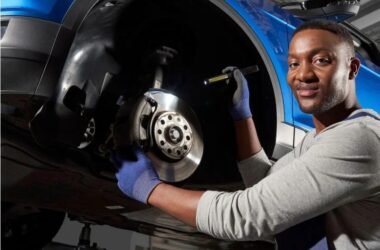Auto Cars: Redefining the Future of Transportation
Over the years, the automotive industry has witnessed a rapid evolution in technology, particularly in the realm of autonomous cars. With major players like Tesla, Google’s Waymo, and Uber investing heavily in this sector, it is clear that the era of self-driving vehicles is not a distant dream but an impending reality. Auto cars, as they are commonly known, have the potential to revolutionize the way we commute, making transportation safer, more efficient, and more convenient.
One of the main advantages of auto cars is their potential to significantly reduce road accidents. According to the World Health Organization, approximately 1.35 million people die in traffic accidents every year, with an additional 50 million suffering from non-fatal injuries. The vast majority of these accidents are caused by human error, whether it be due to distracted driving, fatigue, or other factors. Auto cars, on the other hand, rely on sophisticated sensors, cameras, and artificial intelligence algorithms to navigate the roads, greatly minimizing the risk of accidents. By eliminating this human factor, auto cars have the potential to save countless lives and make our roads much safer.
In addition to enhanced safety, auto cars also offer a level of efficiency and convenience that traditional cars cannot match. With self-driving capabilities, auto cars can optimize routes and traffic flow, reducing congestion and travel times. This not only leads to smoother commuting experiences but also has positive environmental impacts by reducing emissions and fuel consumption. Furthermore, auto cars have the potential to alleviate the burden of parking, a common struggle in densely populated areas. Through smart parking algorithms, they can efficiently park themselves and subsequently pick up passengers when needed. This not only saves time for the driver but also frees up parking spaces in high-demand areas.
Another significant advantage of auto cars is their potential to enable accessible transportation for individuals who are unable to drive themselves. This includes the elderly, disabled individuals, and those without a driver’s license. By offering a reliable, safe, and convenient mode of transportation, auto cars can enhance the independence and quality of life for individuals who were previously limited in their mobility options.
However, despite the numerous benefits, the widespread adoption of auto cars also raises concerns and challenges. Safety remains a primary concern, as any technological system can encounter glitches and failures. Ensuring robust cybersecurity measures to safeguard against potential hacking attempts is essential. Additionally, the ethical implications surrounding autonomous decision-making, particularly in situations where accidents are unavoidable, need to be addressed to ensure public trust and acceptance.
Furthermore, the transition towards a fully autonomous fleet of auto cars will potentially disrupt numerous industries and job markets, including those related to trucking, delivery services, and public transportation. Governments and policymakers need to actively engage in discussions and create plans to manage this transition and support affected workers.
In conclusion, auto cars represent an exciting frontier in the automotive industry, promising safer, more efficient, and more convenient modes of transportation. Through their potential to reduce accidents, optimize traffic flow, and enable accessible transportation, they have the power to redefine how we commute. Nonetheless, addressing the safety and ethical concerns associated with autonomous technologies, as well as supporting workers affected by this transition, is crucial. As we look towards the future, auto cars are likely to play a significant role in shaping the landscape of transportation.










